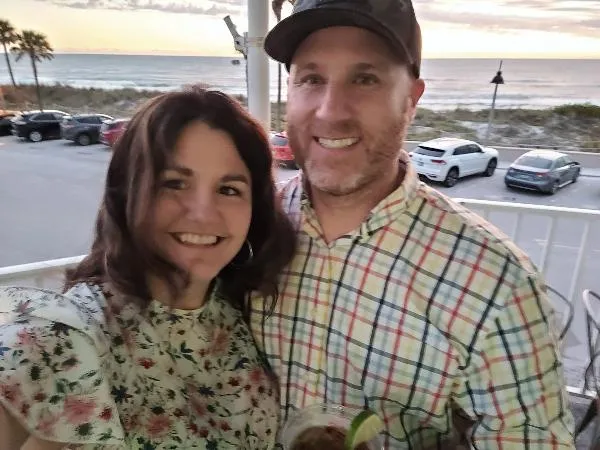
Slaying Financial Literacy: To The Person Who Lacks It Entirely
Picture this, you're in your late teens - early 20's, fresh out of college or fresh out of your parent's house and on your own. You have no idea what you are doing when it comes to paying bills, saving for purchases, or what you are even supposed to put your money toward, and here comes someone that says "Apply for this Credit Card!"
So, like any sane person, you apply for it, right? Then you go out and use it to pay for coffee every day, some new clothes, gas, etc. The list goes on and on!
You also need a car, so you go out and get a sensible car, but of course you don't have any money saved, so you try to get a loan on it. You are turned away because "you don't have good credit, come back with a co-signer". You bring one back, get that car that you wanted and cruise away. Now you are locked in to $400 a month payments for 5 years.
The interest rate on a car loan in 2024 is almost 8% and that is for a good credit score which is above 750.
Which means, you locked yourself in to a monthly payment of over $400 for 5 YEARS and you will be paying over $24k for a $20k car. All because you didn't know how to save for your purchases. Here is the calculator I used.
What the heck is "financially literate"??
Simply put, it's YOU learning how to budget, save, invest, and do all the things money-wise. It's someone like me, who knows how to avoid overdrafts, avoid debt (as much as I can!) and put my dollars to work. I'm not a slave to my paycheck, my paycheck goes where I want it to go.
Part of this is understanding basic concepts like I mentioned above. Budgeting is probably the hardest but simplest one you can learn. Creating a budget as a beginner has never been simpler with my easy steps.
If you're still reading this, that probably means that you lack some or all of what it takes to be financially literate. The good news is, you can still get there!
Stay tuned for some basic concepts that you will need to understand to become financially literate.
Basic Concepts To Understand
1. Budgeting
Do you have a budget? If so, do you look at it at least every month if not more? Weekly would be best. If you don't then creating one is step one for being financially literate. You need to learn how to do a budget if you don't know how to already. I've laid it out in my post here for you. Start there before going forward. A budget will help you tell your money where it is going, and not the other way around.
If you are behind on bills, a budget will help you get a handle on them. You will see where you are overspending and adjust. Groceries are a big culprit in my household! I have 3 kiddos and I swear that they are NEVER full!
Here are ways to meal plan and save money on groceries!
Meal planning has helped our family stick to our grocery budget each month.
2. Improving Your Credit (Or Building It)
Now, I am not a huge proponent of late teens - early 20 somethings getting a credit card, unless you know how to handle it!
I remember when I turned 18 I was really excited to get a credit card. My dad didn't want me to get one for the longest time but when I turned 18, I could do what I wanted, right?
So I got a small little credit card from Capital One with a $500 spending limit. I was so proud of that thing! At first I was good with it, I made sure that whatever I put on it, I paid off the next month.
Except when I decided to use it for everything, then I was unable to pay it off. Making about $6.75/hour at the time, you can imagine that it was a little difficult to pay that whole thing off, but I did!
You can see why I'm a little hesistant. That was just one credit card, now imagine that 10-fold. Unless you are really good and make sure to pay off the cards each month, this can easily get out of hand for you.
So, if you are building your credit, I recommend ONE credit card. Put a tank of gas on it each month and pay it off right away and don't use it after that!
There are also credit builder loans through banks that you might be able to take advantage of, if your bank offers them.
If you made some mistakes when you were younger, and need to repair your credit and/or increase your credit score, check out this post here.
3. Saving
You might be thinking, "I'm living paycheck to paycheck, how the hell am I supposed to save money?!"
I completely understand this. I've been there before. Trust me, I WAS you. That's why I can write about all of these things and how to fix them!
I've had my credit ruined, I've lived paycheck to paycheck, I've wondered how I will put food on the table for my children. I know it's not a good feeling.
So, even if you aren't to the point now that you can save. You will be.
What is the first thing you thought about when I said saving? Was it saving for a vacation, retirement, clothes, car, etc.? Or was it "I only have $30 after bills, how do I save?"
It all goes back to budgeting. I include savings as a "bill" in my budget because it's a non-negotiable for me. Even if it means we can only save $20 one paycheck, that's what we will do.
Even if you save just a little at a time. It's the act of actually saving and getting into that mindset that will propel you forward.
Your habits will determine your future - Jack Canfield
Saving doesn't have to be for big purchases (yet). I recommend getting a starter emergency fund of at least $500, if not $1000. That might be hard to achieve, but think if you could save $10 each paycheck, and then maybe you get some overtime at work and can put some towards it as well. You'll be there in no time!
4. Repaying Debt
Financially literate people pay off their debt, and most do it before the term is up. Financially literate also do not take out too much loan that they can't repay either. Sure, you can take out a loan for that vehicle you want and repay it over 72 months (a whopping 6 years!) but, now you're roped into a monthly payment for 6 years as well as looking at a vehicle that is going to depreciate really fast over that time.
If you have vehicle loans now, work on paying those off as fast as you can. Credit cards, do the same thing! In fact, attack that debt so fiercely that you get it paid off as quick as you can. I'm a big fan of the snowball method by Dave Ramsey. You can find that here.
We don't have vehicle payments at all. I drive an 11 year old vehicle and my husband drives our newer truck. We bought that brand new, but we put $25k down on it due to his old truck that we traded in. Then we worked VERY HARD to pay that thing off, because we still had a $400 monthly payment at the time.
I made an Ebook on how to budget yourself to Freedom and break free of all the monthly payments. Check it out!
👉Budget Yourself to Freedom Ebook Here!👈
5. Investing
You can invest in many ways. Does your work offer a 401(k) or other type of retirement plan? I 100% recommend taking advantage of an employer-offered 401(k), especially if they offer a match.
There are other ways to invest as well to build wealth now if you can as well. Many people invest in real estate. Others in stocks, bonds, or mutual funds.
If you are at that stage in your life to begin investing so you can build wealth, I highly recommend reading and studying as much as you can.
If you don't know already, I'm "weird"
As in, I'm considered weird when it comes to money. My husband and I both are. We enjoy having money and we use it of course, and there are times when we probably don't make sound financial decisions, but we don't play the game of keeping up with the Jonses' like so many people out there.
Our impulse buys are usually taking our family out to dinner, not buying a new car (or in my husband's case a dirt bike 😂). Even though my car is kind of on its last leg, we won't buy a new one because it's still running fine and truly, I probably have another few years out of it.
We are living on a very tight budget now and working to pay off other debt that we have. We have goals to pay off this debt quickly, and if we just have to get that new car (or dirtbike), or house, etc., we will never attain our goals.
So, think of where you are right now. Do you need to start at the beginning (budgeting) so you can learn to be a financial literacy master?



Facebook
Instagram
X
LinkedIn
Youtube
TikTok
Pinterest